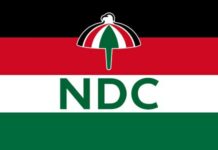In their quest to eliminate Neglected Tropical Diseases (NTDs) by 2030, stakeholders last Friday, conveyed a meeting to validate the country’s sustainability plan to ending the NTDs.
Schistosomiasis, Onchocerciasis, Lymphatic Filariasis, Trachoma and soil-transmitted Helminthes are the five main diseases that constitute the NTDs.
According to reports from the Neglected Tropical Disease Program (NTDP), every region in Ghana have people living with at least one of the aforementioned diseases.
The NTDP identifies the lack of good drinking water, poverty and other developmental issues as the causes of the diseases and advocates that government’s developmental programs should not only be centered in the cities, but in rural communities, where these diseases are prevalent.
The group admitted that Ghana has made progress in reducing the prevalence rate, but said more can be done to eliminate them completely.
It established that some key Ministries, such as Education, Sanitation and Water Resources and Local Government can play key roles in the elimination process.
With regards to the Education Ministry, stakeholders noted that a return to de-worming of school children would go a long way to help reduce the disease to its barest minimum.
For the Sanitation and Local Government ministries, it was established that if these two ministries dedicate portions of their budgets to constructing WASH facilities such as toilet and good drinking water, it will go a long way to help reduce the rate of infection.
Therefore, the program, which was held at the Ministry of Health (MoH) in Accra was aimed at building consensus on the interventions and the implementation of the sustainability plan.
One key purpose was to examine how NTDs services can be integrated into the national health care delivery system.
It also considered how NTDs can be a priority area in government policies, planning and budgetary considerations. The stakeholders again perused how other ministries or sectors can play active roles in the elimination of the diseases.
Some institutions which contributed to the discussions included the MoH, Ghana Health Service (GHS), the World Health Organisation (WHO) and United State Agency for International Development (USAID).
At the end of the over two hours of deliberations, a communiqué, which was endorsed by the Ministers of Health, Education, Sanitation and Water Resources, as well as the Local Government and Rural Development, on the way forward in eliminating the diseases was presented by Dr Hafiz Adam Taher, Chairman, Inter-Country Coordination Committee, NTD.
He indicated that the stakeholders have agreed that the NTDP works closely with other health programs such as the National Health Insurance Scheme and Livelihood Empowerment Against Poverty program to explore how to mainstream NTDs into their services.
He also stated that there will be a crunch meeting among the signatories of the communiqué, in addition to the Agricultural Ministry for a deeper consultation on how their respective ministries can factor in NTDs in their budgets and programs.
Lastly, Dr Taher said the stakeholders made a commitment to continue to call on drug donation partners to support the implementation of the sustainability plan.
On her part, Ambassador for NTD and Chairman for the occasion Dr Joyce Aryee called on all the stakeholders to ensure that the plan is followed in order to eliminate the diseases completely. She proposed a yearly valuation of the plans to ensure effective implementation.
To the donor partners, Dr Aryee said that partnership is what moves the world so she advocates for deeper relationships with commitments that will see to the elimination of the diseases.
The Deputy Minister of Health, Mr Mahama Asei Seini, expressed his delight at the fact that other relevant ministries have been factored in the implementation process.
He called on the stakeholders to also learn best practice in other countries and replicate same in Ghana to ensure that the goal of eliminating NTDs by 2030 is achieved.
Madam Zohra Bolsara, the USAID Health Office Director in Ghana congratulated the NTD stakeholders for putting together the sustainability plan.
She described the plan as a significant milestone since it will provide sustainable, equitable and quality health services to all Ghanaians when carried out well.
She said USAID shares in the country’s vision of getting rid of NTDs so the U.S Government will continue to support the country, as it has been doing since 2007.









